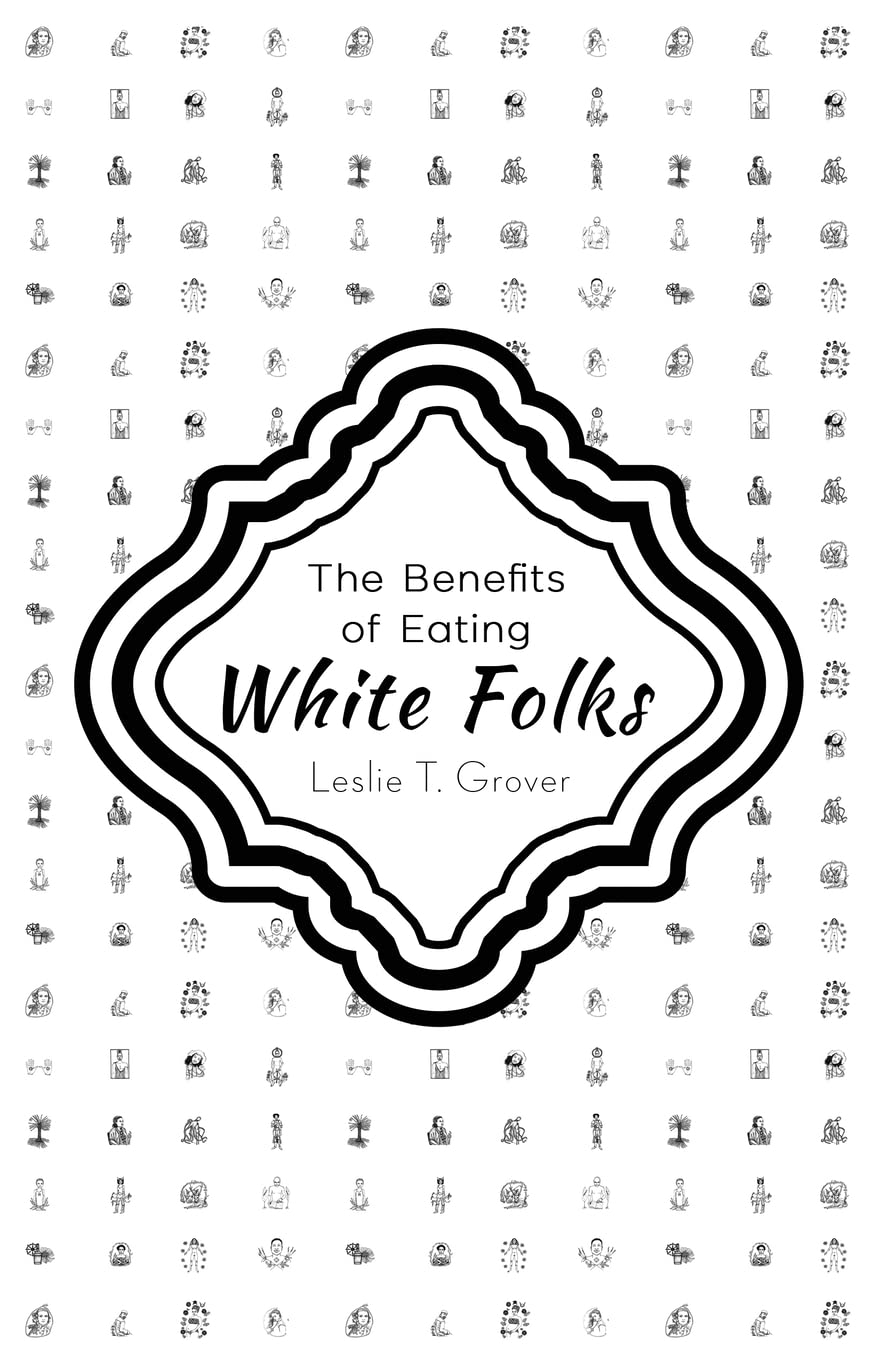|
The Breadcrumbs widget will appear here on the published site.
By Alex Carrigan CW: This review discusses subject matter including slavery, racism, abuse/torture, rape, murder, and more. Please read at your own discretion. Sometimes I wonder If God exists for a Black woman. If He does, He must not be good At paying attention. This stanza opens the first poem in Leslie T. Grover's hybrid novella The Benefits of Eating White People (Jaded Ibis Press). The novella tells the story of Perpetua, an enslaved woman in the pre-Civil War southern US. At the start of the story, an illness known as the Sickness has been killing white children with no cure or reason in sight. At the same time, Perpetua's daughter, Meenie, has vanished without a trace. The novella travels throughout Perpetua's life, as she experiences violence and assault at the hands of her owners, a Doctor and his wife, "The Missus," while also exploring the current pandemic affecting their county. In between the various chapters are poems and illustrations that often contain a phrase or action from the previous chapter. The novella centers the tale from Perpetua's perspective, showing her attachments and emotional states in various points in her life. Only the black characters are named, those being the only people who cherish her and who give her empathy. The most central relationship is the one between Perpetua and Missus, as Perpetua was Missus' personal slave since childhood. What began as a friendly relationship between children warped when Missus married the Doctor and became a true Southern woman. Their relationship turned violent and bitter, with most of the violence Perpetua faces in the story coming at Missus' hands. Of course, Missus isn't the only person to harm Perpetua. Perpetua and the other enslaved folks in the home are always harmed and demeaned by the white people around them. The Doctor forces himself upon Perpetua regularly, while his children are prone to sexually harassing another maid in the home. Even the less violent characters use emotional and psychological violence against the enslaved folks, usually through racist remarks and slut shaming. The novella can be quite difficult to read at times, but it's when Grover mixes in the poetry and illustrations that the novella takes on added context. Each of the poems speaks from a more modern and inquisitive perspective. The events of the novella may be set nearly two centuries in the past, but the crimes and injustices carried out in the institution of slavery still exist in our society in new forms. For example, the poem "Tears" states, I watch how the world laps up White woman’s tears. When she fucks up, All she has to do To get forgiveness Is cry. This speaks to stories from recent years of white women calling the police on black people for various reasons, but also speaks to the core of the novella's themes. The relationship between Perpetua and Missus is about how a privileged white woman can abuse her power and relationship with a black woman, and instead of finding empathy or kinship with her, seeks to command and destroy her body with canings and brandings. The Benefits of Eating White People is a challenging, but emotionally gripping read. The reader will be asked to consider how the events of Grover's novella echo and resonate in the 2020s. The black body is still a target of violence and destruction, and by examining this through her hybrid work, Grover presents a work that reminds and warns the reader about the scars that remain.
0 Comments
CommentsYour comment will be posted after it is approved.
Leave a Reply. |
AuthorWrite something about yourself. No need to be fancy, just an overview. Archives
March 2024
Categories
All
|



 RSS Feed
RSS Feed






